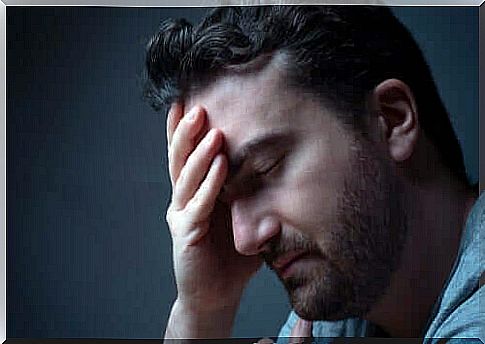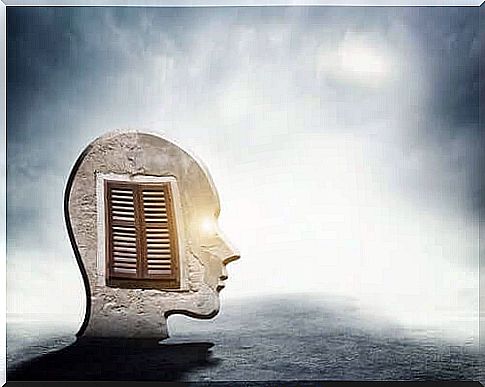Feeling Of Guilt And Its Connection With Anxiety

Feeling guilty is a fairly common symptom of anxiety. Those who suffer from this disorder draw rather damaging conclusions about themselves. They carry a burden on their shoulders for which they are not responsible. They also distort situations, making them suffer even more.
Statements such as “I make things worse”, “I’m sure I hurt them with my behavior”, “I leave my family in the lurch” or “My mother got sick because of me” are just a few examples. However, most of these statements follow a similar line.
People with anxiety are victims of a form of tunnel vision that their anxiety completely controls. They often perceive the anxiety disorder or panic attack as a sign that they have done something wrong.
It is like an anomaly that is beyond their control. They begin to despair and wonder how they can cause so much harm to themselves and what is wrong with them.
Self-blame and the feeling that you are disappointing or hurting those close to you end up nurturing the vicious circle of anxiety. If we also add factors, such as being overly self-demanding or having an obsessive mindset, it is a time bomb for your mental health.
Let’s try to understand these situations a little better.

Feeling guilty
There is logical or illogical (irrational) guilt:
- The former is associated with specific facts that justify the resulting suffering and guilty consciousness. This will be a result of causing real suffering to other people or being responsible for actions that had serious consequences.
- The latter, illogical guilt, is caused by anxiety and even other types of mental disorders.
In the case of feelings of guilt associated with anxiety, it is very common for them to occur in people who always blame themselves for doing or feeling certain things. They even feel guilty about thinking them.
The simple fact of being aware of a negative mental bias or having a mind that sometimes lives in fear or insecurity causes the shadow of guilt to erupt.
They see that they can not control it and that their behavior makes those around them worry. All this intensifies this unpleasant and destructive feeling further.
Feeling of guilt and shame in anxiety
Research recently published in the journal PLOS ONE and conducted at the Karolinska Institute in Sweden claims that anxiety disorders are often related to feelings of guilt and shame.
It is clear that these are two different types of emotions. However, they are both expressed by a common trigger. Which trigger? The inability to be able to control emotions and the subsequent discomfort that this creates.
Guilt means you feel bad about something you have done, said or experienced. Shame on the other hand is more harmful in people with anxiety or other types of disorders. This means that you feel bad about who you are as a person.
Moreover, it occurs when one underestimates or undermines oneself, and at the same time blames oneself for practically everything that happens.

How to deal with feelings of guilt associated with anxiety?
The best way to soothe, unravel, and appease feelings of guilt or shame is to focus on the trigger that intensifies and shapes them: the anxiety itself.
In these situations, cognitive behavioral therapy (CBT) or even acceptance and commitment therapy is useful and effective.
Some useful advice
Nevertheless, it is always useful to know how to deal with complex emotions, such as guilt. Let’s take a closer look at some tips that may help you:
- You feel guilt when you make a moral condemnation of your behavior, feelings, or thoughts. You assume there is something wrong with you. In this case, you need to be aware of one thing: Anxiety is not a defect. It is a mental state that you can and should deal with. If you dedicate yourself to dealing with it, you will actually see positive changes.
- You have to stop judging yourself. If you punish yourself with these constant feelings of guilt, your anxiety will get worse. It’s time to treat yourself kindly. Because of this, factors such as boosting your self-esteem and building self-confidence and impact can really help you.
- Guilt feeds concern. The more you feed your worries, the bigger these obsessive and often illogical thoughts will become. You need to silence these negative thoughts and focus your thoughts on other tasks and more rewarding activities.
Finally, make every effort to free yourself from the burdens that nourish the anxious thoughts in your mind.









